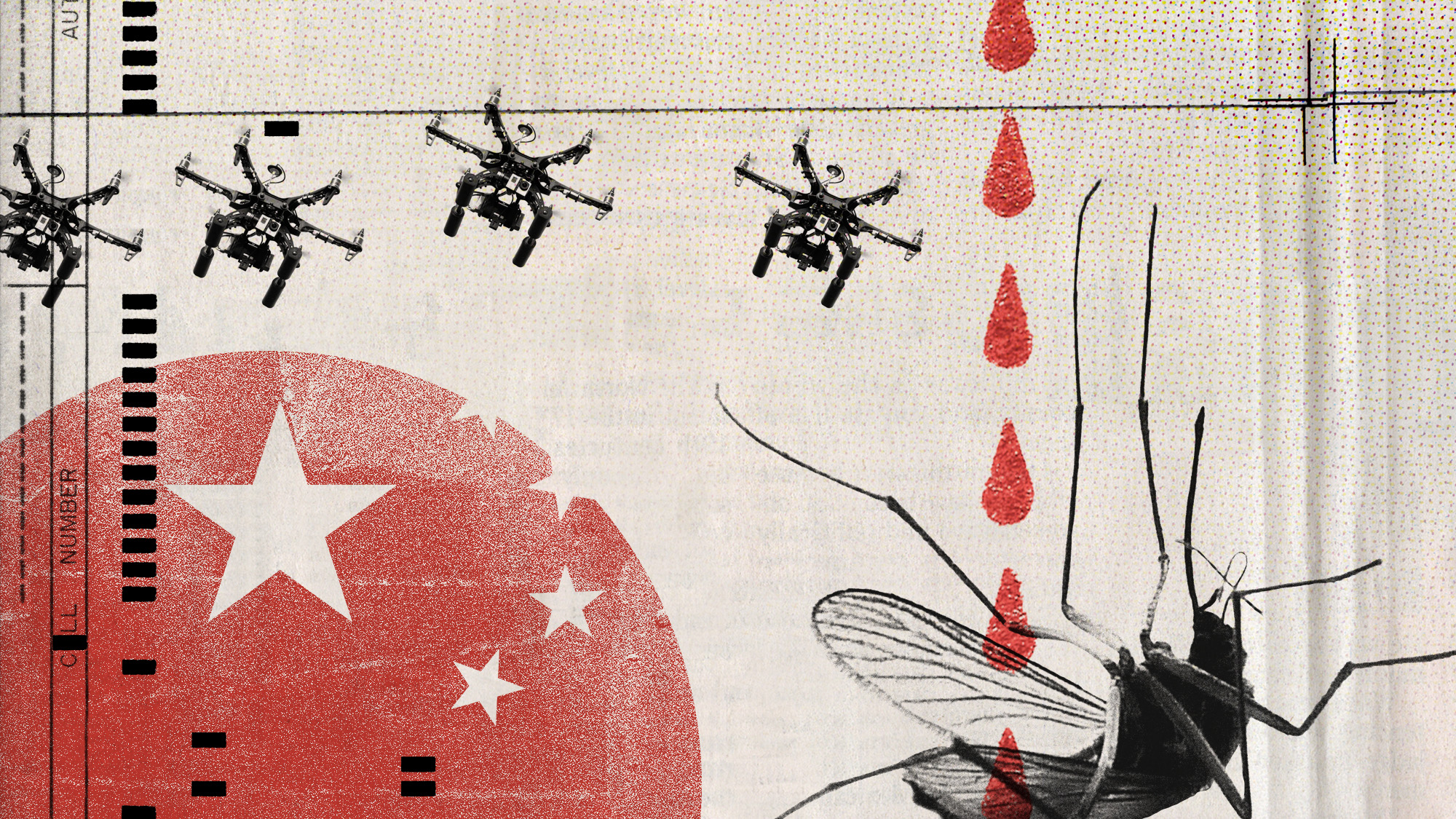How China is battling the chikungunya virus
Thousands of cases of the debilitating mosquito-borne disease have been found in the country

A free daily email with the biggest news stories of the day – and the best features from TheWeek.com
You are now subscribed
Your newsletter sign-up was successful
Killer fish, "cannibal" mosquitoes and drones are just three of the tactics that China is using to fight a new virus.
After thousands of cases of the debilitating chikungunya infection were found across the southern Guangdong province, public health officials have been creative in their efforts to contain it.
'Compulsive killers'
China employed hardline tactics during the Covid-19 pandemic and this time the authorities are using similar "patriotic public health" measures like mass testing, mandatory quarantines, widespread surveillance and citywide lockdowns. But they are also using more novel methods.
The Week
Escape your echo chamber. Get the facts behind the news, plus analysis from multiple perspectives.

Sign up for The Week's Free Newsletters
From our morning news briefing to a weekly Good News Newsletter, get the best of The Week delivered directly to your inbox.
From our morning news briefing to a weekly Good News Newsletter, get the best of The Week delivered directly to your inbox.
The virus is transmitted by infected mosquitoes, so China is using giant "compulsive killers", known as elephant mosquitoes, whose larvae "devour" the Aedes mosquito, which passes chikungunya to people, said The Telegraph.
A single larvae can consume a "staggering" number of mosquito larvae, up to several thousand, according to a paper published last year in the Journal of Tropical Medicine, and their "compulsive killing" and "predatory prowess" extend beyond "direct consumption" – after killing the mosquito larvae they "leave them uneaten".
Mosquitoes aren’t the only creatures being used. Researchers at Sun Yat-sen University in Guangdong have "deployed 5,000 larvae-eating fish, which consume the larvae that hatch in the city's lakes".
Insecticide is being widely used and Chinese state television has shown masked soldiers spraying it "around city streets, residential areas, construction sites" and other areas, said The Associated Press.
A free daily email with the biggest news stories of the day – and the best features from TheWeek.com
After "unusually" heavy rain and high temperatures "worsened the crisis", officials began using drones to "try to find standing water, where mosquitoes lay eggs".
Meanwhile, community workers in red vests are going "door to door" to inspect homes, said The New York Times, and, according to local social media, they're ordering residents to empty all containers of water, including water bowls for their dogs.
'Bend over'
The virus was first identified in Tanzania in 1952, and has since spread to 110 countries. It's most commonly found in sub-Saharan Africa, Southeast Asia and South America.
It took its name from a Swahili dialect and translates approximately as "to bend over" – a reference to its debilitating symptoms. It is rarely fatal but it can cause fever, a rash and joint pain. It can also lead to severe illness in vulnerable groups such as newborn babies, the elderly and people with underlying medical conditions.
Another 1,387 cases of chikungunya virus were confirmed in China last week, said the Daily Mail. This took the tally to more than 10,000 cases overall, with infections reported in Taiwan and Hong Kong, Europe and the US. But last week’s figure was down on the previous seven-day tally of 2,892 cases, a sign that the outbreak could now be slowing.
Chas Newkey-Burden has been part of The Week Digital team for more than a decade and a journalist for 25 years, starting out on the irreverent football weekly 90 Minutes, before moving to lifestyle magazines Loaded and Attitude. He was a columnist for The Big Issue and landed a world exclusive with David Beckham that became the weekly magazine’s bestselling issue. He now writes regularly for The Guardian, The Telegraph, The Independent, Metro, FourFourTwo and the i new site. He is also the author of a number of non-fiction books.